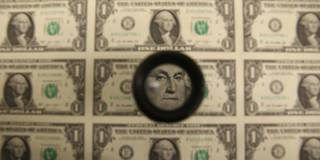Kenneth Rogoff's criticism of Modern Monetary Theory assumes that MMT advocates don't care about budget deficits or the independence of the US Federal Reserve. But these assumptions are wide of the mark, and Rogoff himself sometimes undermines his own arguments.
AUSTIN – Is Modern Monetary Theory (MMT) a potential boon to economic policymakers, or, as Harvard’s Kenneth Rogoff recently argued, a threat to “the entire global financial system” and the front line of the “next battle for central-bank independence”? For Rogoff, the threat seems to stem partly from the fear that MMT adherents may come to power in the United States in the 2020 elections. But he also makes several substantive arguments, common to many critics of the MMT movement.

AUSTIN – Is Modern Monetary Theory (MMT) a potential boon to economic policymakers, or, as Harvard’s Kenneth Rogoff recently argued, a threat to “the entire global financial system” and the front line of the “next battle for central-bank independence”? For Rogoff, the threat seems to stem partly from the fear that MMT adherents may come to power in the United States in the 2020 elections. But he also makes several substantive arguments, common to many critics of the MMT movement.